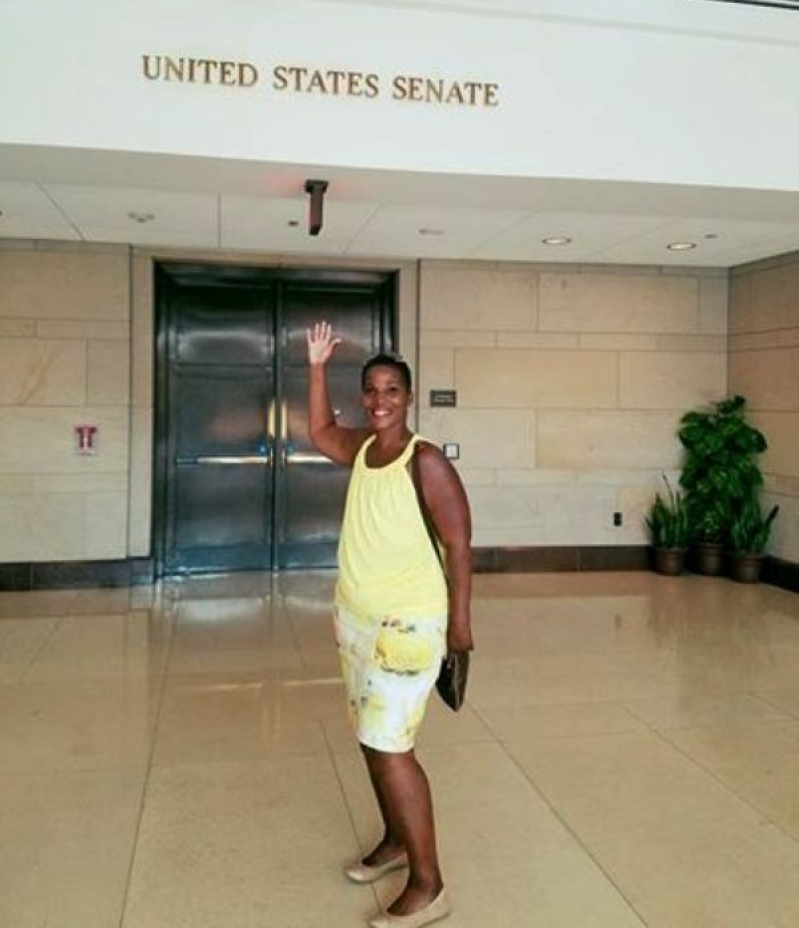
Eight months after Paulette Leaphart's double mastectomy, she said God spoke to her and told her to remove her shirt. She was at the beach over Labor Day weekend at the time, and as strangers saw her scars, they started to cry but also applauded. Those unplanned minutes launched Leaphart's new personal purpose to help other survivors find beauty in their bodies - to free them.
"It didn't just free me that day," she said in an interview with The Washington Post. "Everybody who witnessed it and saw my scars, they were freed, too."
She said the whole experience lifted her out of a post-surgery depression.
She then decided to embark on a topless 1,000-mile trek from her hometown of Biloxi, Miss., to Washington, D.C. Her effort went viral, prompting mega-singer Beyoncé to invite her to appear in the "Freedom" segment of her visual album, "Lemonade."
"I'm a Christian! I don't want to get involved in that 'Drunk in Love' stuff!" she said, referring to a single from Beyoncé's previous album. It took several calls from the filmmakers to persuade her.
Filming the segment turned out to be a tremendously emotional experience for Leaphart, reported The Post. She was dazzled by the grace and humility of Jay-Z and Beyoncé, who told Leaphart that she wanted her daughter, Blue Ivy, to be as strong and beautiful as Leaphart when she grew up.
On Leaphart's recent birthday, she successfully finished her 60-day, 1,034-mile journey in Capitol Hill.
She had many unique stories to tell. At several points, Leaphart and Madeline, her 8-year-old daughter, who accompanied her on the journey, had to walk far more than their planned 30 miles per day to find a place to stay for the night. There were also several encounters with police, who she said stopped her because of her toplessness, and she'd have to explain what she was doing.
A film crew team who intended to follow Leaphart and turn her journey into a documentary titled "Scar Story" announced in early June they had left the walk and would not be making a film about Leaphart after all. Leaphart told The Post she and the crew had different visions for how to conduct the project, with much of the disagreement having to do with how to spend the money they had raised.
Yet Leaphart described the journey as "peaceful."
"It was healing to me. It was gaining back my strength. It was spending some personal, much, much, much needed time with God," she said, indicating that God had been there for her at the beginning of her two biggest challenges: her private fight against breast cancer and her public walk to end breast cancer.
In an interview on NewsOne, Leaphart said it was God who told her she had breast cancer. Even though she knew that breast cancer ran in her family, and several relatives had died because of it, she had never previously thought about the likelihood that she would also have it.
And so, in early 2014, Leaphart, a 47-year-old social worker and single mother who had never before had a mammogram, immediately sought out a surgeon, who confirmed her suspicions.
Throughout the whole ordeal, Leaphart said she also hoped to inspire change in the American healthcare system and to demand that more attention and resources be devoted to finding a cure for breast cancer.
"I don't want to give them a pretty story wrapped up in a pretty pink bow about breast cancer because that's not what it is. This is it, across my chest," said the courageous woman.






